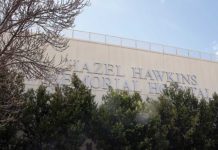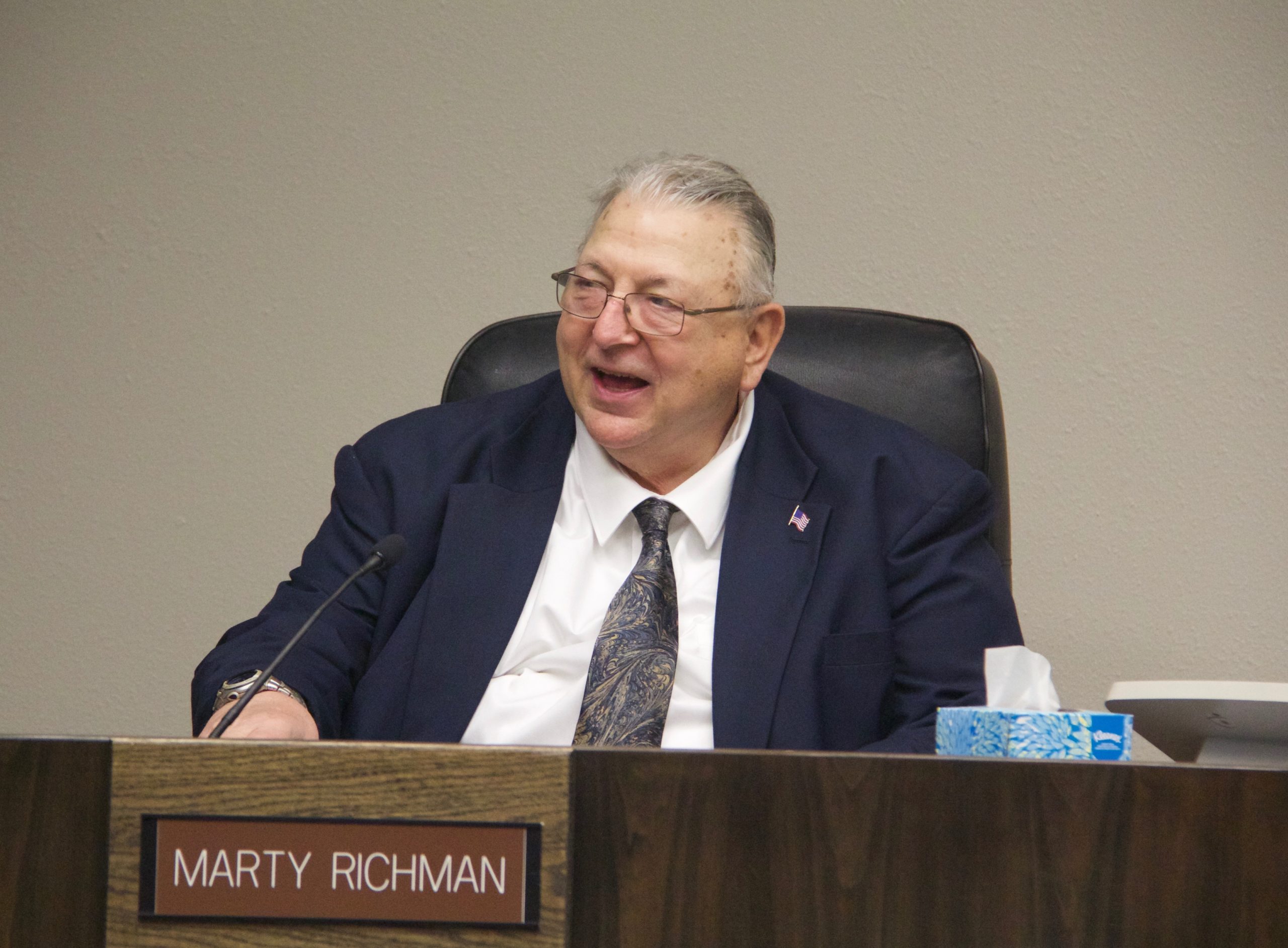The San Benito High School superintendent and five trustees gathered at a special workshop Saturday morning to discuss a breakdown of trust and communication among officials, but violated the state open meetings law by following it with a closed session that had been absent from the agenda until that morning.
Superintendent John Perales called the abruptly organized closed session—which he contended during the meeting would include talk of his own contract—an almost “threatening type of message.”
“To me, it just sounds like there may be an outcome to this that may not be in my favor,” Perales said. “It’s almost like we want to be open and honest about this, but after this we want to talk about your evaluation.”
Board President Ray Rodriguez in an interview with the Free Lance after the meeting Monday contested that trustees added a closed session with “personnel-related” items to the agenda using a provision of the Brown Act that allows a majority of the board to add urgent items with little notice.
A legal expert on public meetings, however, disagreed with the board president’s perception.
“This is not what the provision was intended for,” said Nikki Moore, the staff attorney for the California Newspaper Publishers Association.
If an agency needs to have a special meeting, which the law allows in the case of a catastrophic accident, the agency still needs to give one-hour notice, she explained. The Saturday workshop was a special meeting and required a 24-hour notice on agenda topics up for action or discussion.
“If it was a personnel issue, then that’s a normal kind of issue that doesn’t require any kind of immediate action,” she said, countering the “urgency” argument.
Themes of the nearly four-hour workshop included concerns about communication and trust; talk of how different personalities affect approaches to work; and the consultant’s suggestion that the school board create a compact outlining practices and including regular self-evaluations.
The workshop followed several tumultuous weeks for San Benito High School, in which Principal Todd Dearden resigned in early December following an ongoing investigation and longtime football coach Chris Cameron announced his own resignation from the post.
Prior to holding the workshop, consultant Mike Crass of Dave Long & Associates met with each of the trustees and the superintendent and asked them six questions while taking notes. The answers people had to those questions were shared—generally anonymously—at the special workshop open to the public.
When the group was asked to rate the school district based on the relationship between the superintendent and the board of trustees on a 1-10 scale, with 10 being best, the scores were: 7.5, 7, 4-5, 3, 2 and 2, Crass said.
Perales, who told trustees he selected 7.5, added he could see Crass’ notes. Perales said at the time he knew what people wrote, so they should all be honest about their numbers.
“I think that will come, John,” Crass said.
Trustee Evelyn Muro added there may have been some disconnect in officials’ understanding of the question, as there might be a difference between rating what people think of the board and superintendent relationship as opposed to the district as a whole.
A summary of answers to a second question about what trustees and the superintendent most wanted to see changed in the district revealed concerns about honesty and trust, Crass said.
“What I heard he attributed to you is, ‘I want to trust you that you will do the right thing,’ and I think it’s a different kind of trust we’re talking,” said Board President Ray Rodriguez to Perales. “You want us to trust you and I want to trust that I’m getting the whole story.”
Traits board members and the superintendent said they did not want to lose with change included: the good relationship with staff; improved staff morale; the fact that when things need to get done, Perales gets them done; wanting to keep the fiscal solvency the district had; and wanting to keep academic excellence, Crass summarized.
Crass promised to “tick off” everyone present before the workshop ended, he said.
“I’m going to suggest things that I believe John, you need to change. I’m going to suggest things I believe the board needs to change,” the consultant said. “What I want everyone to realize is I hope that I can look at this with an objective viewpoint.”
Trustees Muro and Juan Robledo expressed concern about agenda items or additional information they requested that didn’t appear on the agenda right away.
Crass highlighted the importance of good communication. He added that email communication has its limitations. Rodriguez clarified that there is a difference between the amount of communication and the content.
“With an email, that lack of communication may lie in lack of communication of personnel issues that I can’t communicate with the board,” Perales said. “Because if it’s a certificated issue, the board will ultimately hear.”
Muro added that for her, experience as a former human resources director means she doesn’t touch that stuff, she said. For her, the issue revolves around emails and board meetings where she requested agenda items and did not get any response or action, she said.
Robledo explained that after recently attending the California School Boards Association conference—about a year after he was elected—he learned the five trustees are in charge of “setting direction and all those nice things you said earlier but sometimes I feel it’s the other way around,” he told Crass.
“My experience with board agendas is, I would like you to go back to the title,” Crass said. “It’s a board agenda.”
Muro added that the CSBA conference helped clarify the roles of the school board and superintendent and added that it was important to put some discussion of this into any compact the district might create.
“These compacts are a good thing,” said Rodriguez, who added they had been mentioned in the CSBA workshop for presidents. “It’s not always that the board is doing the right thing, so that we can be held accountable.”
Trustee Steve Delay was mostly quiet during the meeting. When Rodriguez asked if he would like to comment, the trustee added there was something he wanted to discuss during closed session.
“There’s an issue I want to bring up in closed session,” Delay said. “I don’t want to make it public.”
76.1
F
Hollister
July 26, 2024








